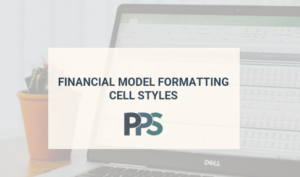Five Common Myths about Financial Modelling
I’m sure at some point we’ve all had someone tell us: “don’t go outside with wet hair, you’ll get a cold!” or had the importance of breakfast extolled to us by well-meaning, but misinformed friends, family or colleagues.
However, these little tidbits don’t often hold up under the scrutiny of a quick Google. There are plenty of myths about financial modelling, and in this blog, we address the top five most common myths and bust them.
1. You need to know VBA/programming to do financial modelling
Not knowing VBA or programming is often used as a roadblock to financial modelling. In truth, the use of VBA in financial models is limited and while programming is useful, it’s not mandatory.
Transparency is one of the key characteristics of best practice models, but it can often get lost when there are calculations and assumptions embedded in a VBA code.
It’s a common error among beginners to overuse VBA, but most seasoned modellers move away from it over time due to its limitations.
2. My business is too small to need financial modelling
None of the reasons to use financial modelling are dependent on company size.
If you use Excel spreadsheets to organise and analyse data and inform your business decisions, you can benefit from financial modelling skills.
If you don’t currently use models, it’s certainly something to consider, as it’s a great way to streamline your business and improve both efficiency and productivity.
If you’re not sure where to start, our Introduction to Financial Modelling course will give you all the tools and skills you need to integrate modelling into your business practices.
3. Financial models are complicated
There is a common thought that models are complicated, take too long to understand and are prone to error if operated by anyone but the original builder.
This is not the case for good models.
Good modellers always aim to eliminate key risks by making sure that their models are easily understood and operated. Many people are already averse to reading the instruction manuals that come with their flat pack furniture, so nobody wants to read a 100-page operating manual. Models should be sleek, intuitive and easy to use whether you’re the designer, a regular user, or a newcomer to modelling.
4. Financial models can’t be trusted (as opposed to bespoke software – both need to be looked after over time)
This is an argument used to support system transformations. However, financial models are perhaps the better option because they are so easy to use and exceptionally versatile and mouldable. This is not the case with complex systems, where you might need to bring in an IT expert in order to make simple changes.
Every business has exceptions, which is why one-size-fits-all solutions rarely stand the test of time.
If you rely on your software provider’s consultants to come in and design new reports and customise your systems, have you really benefited from moving away from Excel?
Despite the myriad systems that some firms have, they often still somewhat rely on Excel models, whether it’s to supply their inputs, or use their outputs for further calculations.
Either option requires maintenance, but you’re more likely to have an Excel expert on hand than an IT specialist.
5. You need a qualification to be a financial modeller
Financial modelling certifications are fairly recent, so most modellers out there don’t have any.
Many do have some certifications, such as one from an accountancy body or CFA, but these are not prerequisites to get involved in modelling.
We strongly believe that anybody who uses Excel can be a financial modeller, they just need access to the right resources and guidance.
At PPS, we have a wealth of experience in financial modelling. Throughout our careers, we’ve heard all of the comments above before, and many more, so wanted to clear up some of the myths about financial modelling.
Our vision is to make financial modelling more accessible, by offering training courses that help those who want to enter the field but haven’t yet been afforded the opportunity. Our range of financial modelling services can also help businesses with any financial modelling requirements, saving time and money and mitigating risk.
If you have a project you need a hand with, or want to take your modelling skills to the next level, you can contact us today at info@pps.financial.



